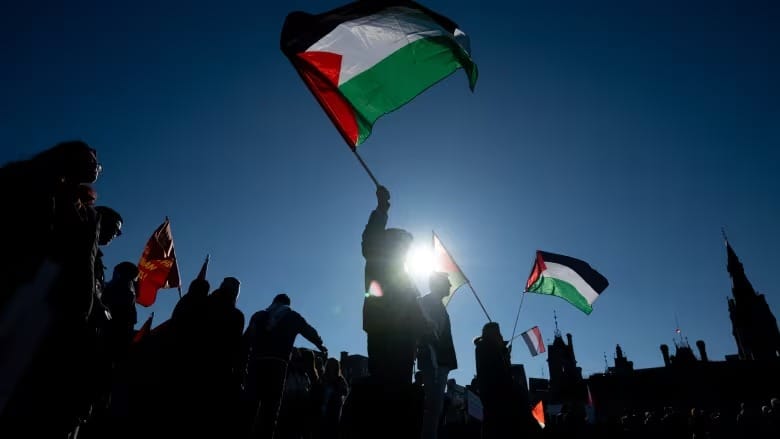Canadian government speaking with allies about Palestinian statehood recognition, official tells MPs
Government lawyer tells parliamentarians no legal impediment to recognition

During a committee meeting on Thursday, a Canadian government official shared that discussions are ongoing with other like-minded countries about the potential recognition of a Palestinian state. Alexandre Lévêque, assistant deputy minister for Europe, the Middle East, and the Arctic, confirmed that these talks are part of a collaborative effort, but he declined to name the countries involved, citing the confidential nature of the discussions.
"We're taking notes, we're talking to each other, we're weighing the considerations as a group of very like-minded countries," Lévêque explained, noting that some of these nations are also deliberating the right timing for such a recognition.
The motion to consider recognizing a Palestinian state, proposed by Liberal MPs in September, has sparked debate. Historically, Canada has maintained that Palestinian statehood should only be recognized after a peace agreement between Israel and Palestinian leaders. However, last May, Prime Minister Justin Trudeau broke with this tradition, suggesting that Canada could recognize Palestine independently to encourage a two-state solution. This move followed Canada's abstention in a UN vote on Palestinian statehood, marking a departure from its long-standing policy of voting against such resolutions.
The NDP supports immediate recognition of Palestine, while the Conservative Party opposes this, arguing that such a move could reward Hamas for the deadly October 7, 2023, attack on Israel. Conservative foreign affairs critic Michael Chong raised concerns about potential fallout from recognizing Palestine before key allies, such as the U.S. and the G7, do.
Lévêque responded cautiously, stating that the issue is actively being discussed in countries like France, the UK, Germany, Australia, and New Zealand, but declined to speculate on conversations within the U.S. administration.
A government lawyer added that there are no legal obstacles to recognizing Palestine, noting that recognition is a political decision that can be based on customary international law and practice.
Jewish community organizations, including the Centre for Israel and Jewish Affairs, have warned against recognizing Palestine, fearing it could reward Hamas and exacerbate instability. Conversely, advocacy groups like Independent Jewish Voices argue that such recognition could help resolve the conflict and end Canada's perceived complicity in the Israeli occupation.
As tensions persist in Gaza, where more than 43,000 Palestinians have been killed since last year, the recognition debate remains contentious.





